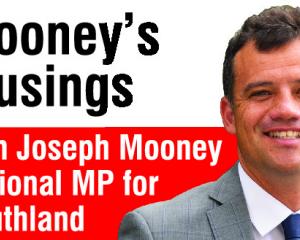An Otago farmer's misplaced trust in a stock and station agent has ended with a judge saying the days of doing business on a handshake are over.
In the High Court at Christchurch, Justice Gerald Nation found largely in favour of Jasper Ross Clark against stock and station firm Rural Livestock. He awarded Clark more than $270,000 plus interest and costs - far less than the nearly $640,000 the Milton farmer had sought.
"At least historically, it was often a source of pride amongst New Zealand farmers and stock agents that all that was needed to secure their dealings was a handshake," Justice Nation said in his judgement.
"The experience of the parties to these proceedings may well suggest that should now be consigned to history."
Farmers should also know "what stock they farm and keep tallies," he added.
The judgement wove a complicated tale of Clark's dealings with stock agent John Williams, with whom he had a long-standing relationship but who clearly was not great with paperwork. His dealings are under scrutiny by the Serious Fraud Office.
The total amount awarded relates to various transactions, including Clark's $210,277.50 purchase of 176 pregnant heifers which Clark never saw, another series of deals or attempted deals involving 253 heifer calves, and 112 "empty" dairy heifers of which Clark got just 71 or 72.
Justice Nation noted Clark "put a significant degree of trust" in Williams and even though he acknowledged problems with Williams providing him with the paperwork for transactions, "considered Mr Williams was a good agent in terms of setting up deals."
Clark bought the 176 pregnant heifers to be put out to pasture on another farmer's land until after they calved. The second farmer would keep the calves as payment but the cows were to be returned to Clark.
Williams had leased the cows to two different farmers, one of whom appears not to exist, and when it came time to return the cows to Clark, they could not be found.
Justice Nation noted an unusual feature of the case was that Williams, "whose conduct is under challenge, gave evidence for the plaintiffs."
Although the judge accepted some of Williams' evidence, there were matters "on which he seemed unnecessarily defensive or unhelpful and some areas where his vagueness was of concern in my assessment as to his credibility on crucial matters."
The judge said there was no dispute that Rural Livestock invoiced Clark for the cows and Clark paid the bill, but what happened to the cows was problematic.
"Under cross-examination, Mr Williams said he had arranged the lease of 90 heifers to Mr Bouma and the remainder to a farmer in Canterbury," the judgement says.
"He said that he was under constraints through obligations of confidentiality in relation to his involvement in the investigation of the SFO but that he was able to say the stock leased to a Mr Greers or Giers in Canterbury had ultimately `gone north'," it says.
Apparently, some of the cows ended up being sold but Clark was kept in the dark about this and never received payment.
A Rural Livestock general manager suggested it was possible the proceeds were credited "to one of Mr Williams' own fictitious accounts, although not paid out to him".
Rural had frozen all Williams' accounts.
That person acknowledged the firm's "systems and management inadvertently allowed Mr Williams' irregularities to occur unnoticed and then failed to detect them for some time."
Justice Nation found Clark was not entirely blameless.
"I accept that Mr Clark was unduly trusting of Mr Williams, naively optimistic that all was in order as far as the leasing of the stock was concerned and casual to an extent that differed from usual farming practices in never checking on the stock," the judgement said.
But "such negligence did not, however, contribute to Rural's breach of its obligations," and it was reasonable for Clark to expect Rural would perform a contract," it says.
Justice Nation also exonerated Williams on one part of the claim relating to the 253 calves, saying that Williams had never promised to arrange agistment for them, only to do his best to do so.












